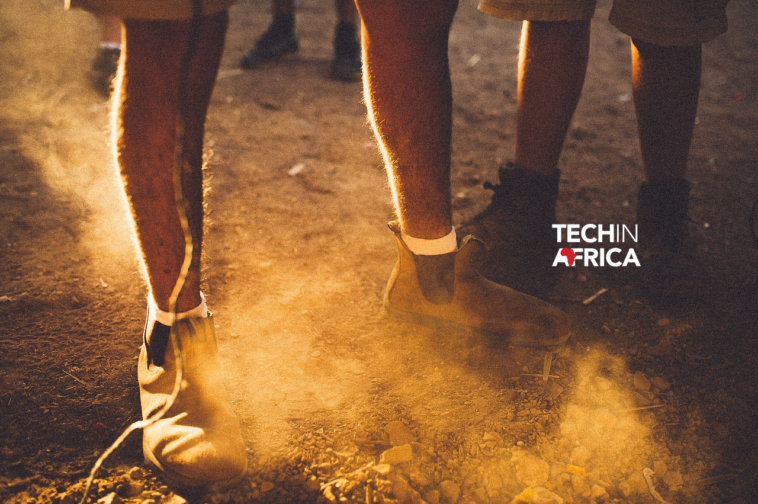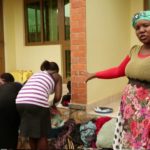TechInAfrica – Africa is the most naturally abundant of all the World’s continents, making up about 60% of its arable land. Boasting breathtaking diversity in flora and fauna, on land and at sea, it should come as no surprise that agriculture and the production of food is the beating heart of life on the continent.
Before the dawn of urbanisation and the influx of rural inhabitants into major city centers, survival in Africa depended almost exclusively on subsistence farming. Families would cultivate crops, rear livestock or catch fish for their own sustenance or subsequent trade. It was a simpler life, in harmony with nature and the bounty of the Earth. Much has changed in the modern age of technology, however, and Africa is slowly emerging as a powerful player in the global marketplace, whilst Africans are abandoning the rural life for the frantic and unforgiving pace of the city, often to their detriment. But despite the rapid rate of urbanisation, millions of Africans have been left behind, to rely on the old ways of growing or catching food as a means of survival.
The majority of subsistence farming in Africa is based around crops and livestock, but fishing continues to be a vital part of everyday life for many rural Africans. The Ocean remains the dominant source of aquatic sustenance, but millions still depend on the Great Lakes and other sizable water bodies for their livelihoods. One such example is Lake Victoria, the largest lake in Africa and the third largest in the World by area. With a surface area of nearly 70 000km2, the lake falls over three countries, Tanzania, Uganda and Kenya and is home to Africa’s largest inland fishery, supporting hundreds of thousands of locals and generating massive revenues each year.
The booming fish trade centered around Lake Victoria is vital to so many lives, however, much like any other production or processing industry, there is an inherent level of wastage and pollution, which can be extremely detrimental to the health of the lake and all those who rely on it for survival, human or otherwise. One of the lesser known, but no less impactful, issues that locals face is the massive level of fish waste: from fish skin, tails, eyes and gills, this unsightly offal is casually discarded in heaps beside the lake to rot in the baking sun. As one might imagine, this generates an overpoweringly rank odour, which in turn attracts millions of flies and other scavengers and results in entirely unhygienic conditions around such a precious water source.
Any good entrepreneur knows that a problem is merely an opportunity waiting for the right solution, and this is exactly what Newton Owino realised when he regarded the fish waste situation in his local city of Kisumu, nestled on the bank of Lake Victoria in Kenya. The local fish processing plants in Kisumu produce around 20 tons of fish waste daily and Owino, who had studied leather chemistry in India in the late 90s, saw a golden opportunity to transform this disgusting waste into a viable product.
Starting with an initial capital investment of just $1100, Owino launched Alisam Product Development and Design, which was initially processing only 200kg of fish waste per week. Working with local fishermen and women’s groups, whom Owino would pay to collect discarded fish skin , Alisam found its humble beginnings in tanning the skins to create hardy, waterproof ‘fish leather’ as an alternative to the traditional cow or goat leather.
The entire tanning process is done manually, saving costs and electricity, and involves soaking and salting the skins for preservation before they are scaled and smoothed using a charcoal iron box. The skins are then soaked again for roughly an hour before banana extract and salt is added to strengthen the leather and remove any lingering odour or bacteria. The leather is then given a final soak in a water and baking soda mixture to remove any remaining salt or bacteria before the final curing phase, in which it is left to dry for two to three hours in the shade.
The versatile fish leather that Alisam produces is then used to create shoes, handbags, belts, wallets, watchstraps, caps and much more. Although Alisam’s products are now in high demand, with exports to the UK, USA and Italy amongst others, for the first two years they barely turned a profit. But Owino was determined to take his business to the next level and, through his commitment and perseverance, the business is now growing steadily, turning a very healthy profit, employing 17 permanent workers and creating many employment opportunities for locals in the area. Owino has even begun to take on the role of motivational speaker, giving talks about his entrepreneurial endeavors as far and wide as Denmark and California.
Ever the environmentalist, Owino was acutely aware of even the smallest levels of waste that Alisam itself was producing. To rectify this he decided to construct a biogas plant, which would convert the organic pollutants, produced by the tanning process, into two useful by-products: methane gas and organic liquid fertilizer. This not only reduced the harmful footprint left by Alisam, but also resulted in two new revenue streams for the business, a wonderful example for the green entrepreneurs out there.
Despite the best efforts of Alisam and its founder, Lake Victoria is still under huge threat. Pollution, overfishing, invasive species and disease are all very real dangers to this Great Lake and its inhabitants, and all of these problems will need to be addressed if the lake is to survive and continue to function as such an important part of so many lives. Although the situation is precarious, one cannot help but feel optimistic about the future with men like Newton Owino providing such innovative, green solutions to the problems this great continent faces. If more young entrepreneurs can learn from Owino’s example and strive to make a sustainable difference in the lives of their communities and, indeed, their countries, the future of Africa will be very bright.




One Comment
Leave a Reply